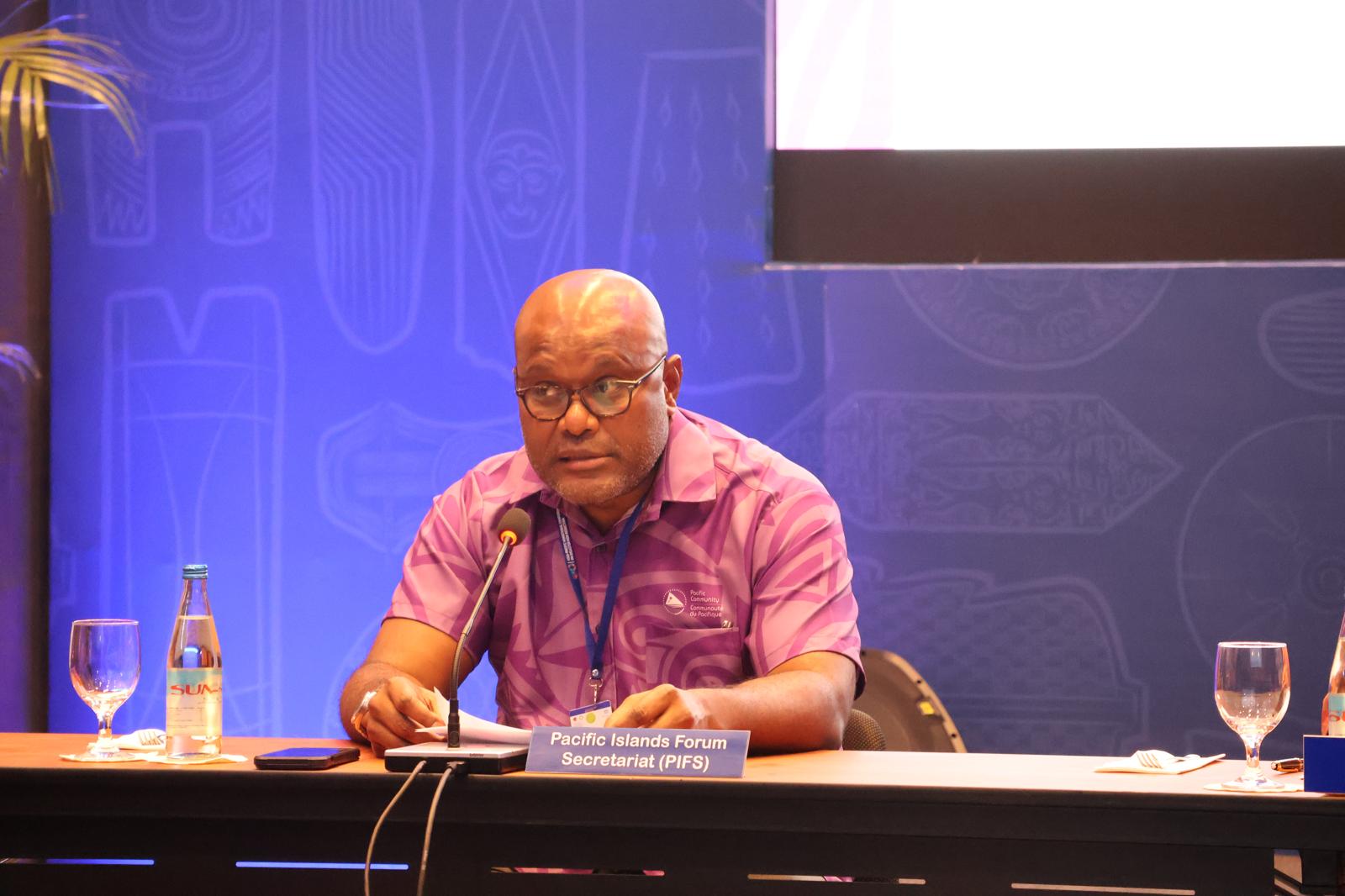“A single cyclone can erase decades of development in mere hours.”
This statement was made by Deputy Secretary General of the Pacific Islands Forum, Esala Nayasi, in his address at the Pacific Disaster Risk Management Ministers first intersessional meeting.
The meeting, held in Manila, served as a vital platform for Pacific leaders to align on strategies to build resilience against the region’s growing disaster risks.
“We are all too familiar with the devastating impacts of disasters,” DSG Nayasi said.
“This reality demands that we adopt risk-informed, integrated approaches to development, which are more important now than ever.”
DSG Nayasi conveyed deep appreciation for the leadership of the Pacific Ministers in their work to strengthen disaster resilience, while emphasising the critical role of partnerships.
“We cannot do this work alone. Strong, sustainable partnerships are essential, and United Nations Office for Disaster Risk Reduction (UNDRR) has been a trusted ally in these efforts,” he said.
“Following the recent mid-term reviews of the Sendai Framework and the Framework for Resilient Development in the Pacific (FRDP), we have the opportunity to reflect on our regional priorities and develop strategies that build on the strong political will of our Leaders.
“It is imperative that we, as a region, focus on how to collectively address disaster risks and build resilience for the future.”
He congratulated Kamal Kishore on his recent appointment as the UN Secretary-General’s Special Representative for Disaster Risk Reduction.
“Under your leadership, this partnership will only grow from strength to strength.”
DSG highlighted the significance of recent endorsements from Pacific Forum Leaders, including the establishment of a Political Champion for Disaster Risk Management. These developments, he explained, reflect a renewed commitment to amplifying the Pacific’s unique challenges on the global stage.
“This endorsement is critical in our efforts to take every opportunity to impress upon the global community our unique circumstances, and the challenges we face as individual countries and collectively as a region.”
He also highlighted recent regional discussions that have laid the groundwork for a more integrated approach to resilience.
“In recent weeks, we’ve had key discussions during the Resilience Week in Suva, the pre-COP meeting in Nadi, and the Pacific SDG updates.
“These meetings, including today’s, offer us an opportunity to align and consolidate our efforts across climate change, Disaster Risk Reduction (DRR), and sustainable development. They should no longer be addressed in silos but tackled as interconnected challenges requiring a unified approach.”
He highlighted the 2050 Strategy for the Blue Pacific Continent and the FRDP as key tools for achieving this alignment.
“We must ensure that systemic, holistic resilience-building is at the heart of our work, with adequate funding and resources to support implementation at scale,” he stressed, urging Ministers to drive collective action across the region.
“As individual nations, our capacities may be limited, but as a collective, we hold immense potential.
“By working together with regional agencies and UN partners, we can better support our communities, enhance preparedness, and improve our ability to respond to and recover from crises.”
Nayasi thanked the Ministers, the Pacific Community (SPC), and other regional partners for their dedication to resilience and preparedness efforts.
“Today’s discussions are a testament to our collective strength,” he said, voicing his hope for continued collaboration in securing the safety and well-being of Pacific communities.













